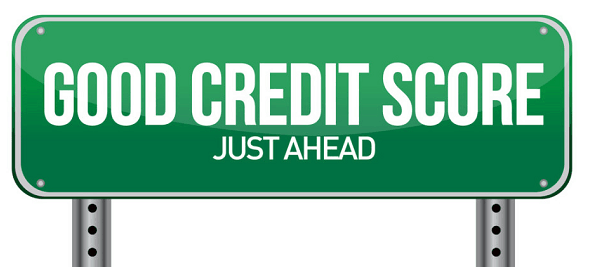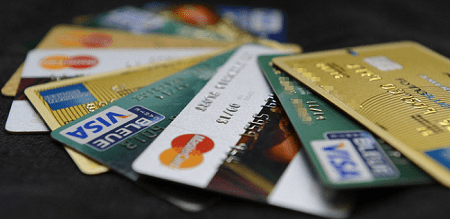
If you’ve recently checked your credit score and see that it’s not as high as you’d like it to be, don’t worry! Improving your credit score is not as impossible as it seems. Credit scores are determined by a variety of different factors:
- Amount of debts you owe
- Payment history
- Length of credit history
- Mix of credit
- Amount of new credit
Keeping those factors in mind, you can identify what you need to work on. A good credit score goes a long way to be approved for highly desired cards, loans, and more. For tips on how you can improve your credit score, read the article and find out more!
 |
 |
Steps to Improve your Credit Score:
Get On Top of Payments
The first, most obvious way to improve your score is to deal with past-due payments. The biggest influence on your credit score is in fact your payment history. Unless you are paying your bills on time, your score will not be able to improve. If you’re behind on any accounts, call the creditor. Arrange to pay up and ask if it will rescind the reported delinquencies so they no longer appear on your reports. Even if the creditor won’t rescind those previous late payments, it’s worth getting current on the account ASAP. Each month an account is marked delinquent hurts your score, and a 60-day delinquency hurts more than a 30-day delinquency.
Missed payments stay on your credit report for seven years but you can start counteracting the effect right away: Focus on paying every bill on time from here on out, so you’re offsetting those negative marks with more recent positives.
Stay Under Your Credit Limit
Another factor that influences your credit score is how much of your credit limit you use. Here are ways to manage it:
- Make multiple small payments — often called micropayments — during the month to keep balances down. You can even treat your credit card like a debit card, paying online as soon as you see a purchase is posted.
- Ask for a credit limit increase. When your limit goes up and your balance stays the same, you instantly lower utilization. Call your card issuer and ask whether you can get a higher limit without a “hard” credit inquiry. Hard inquiries can temporarily drop your score a few points.
- Tackle balances on the cards with the highest utilization first. Maybe a tax refund or other windfall could help. Sometimes it doesn’t take a lot of money, especially on low-limit retailer cards: A $250 payment on a $300 limit card will make a big difference.
- Move some debt. A debt consolidation loan could let you reduce or eliminate card balances, lowering your utilization. Getting a personal loan at a better rate than your credit cards have also could save you money in interest.

Create a Plan to Improve Your Credit Score
Once you get your credit score report back, identify what areas you can improve on and devise a method on how to tackle them. To begin improving your credit score, you should aim to keep your credit card balances on the lower end along with any other type of revolving credit you may have. You should also begin the task of paying down your debt rather than moving it around, and you shouldn’t close any unused credit cards because you are looking for a “quick fix” strategy to improve your credit scores. Finally, do not attempt to open any new credit accounts such as obtain a new loan or apply for a new credit card that you don’t need because you are just looking for a way to increase the available credit you already have.
Don’t Let Old Mistakes Affect You
If you’ve filed for bankruptcy, gone into foreclosure or suffered through a short sale, you may be wondering how long it will haunt you. For all of these mistakes, your credit score takes the biggest hit when it first hits your credit report, but its impact will lessen over time and eventually that account will disappear from your credit report due to federal laws that limit the amount of time it can impact you.
Limit Credit Applications
The 10% discount for signing up for a store credit card may seem worth it at the moment, but your credit score will take a hit for applying, whether you get approved or not. The hit is small (normally around 3 to 5 points) but if you’re on the edge of two credit score tiers or applying for lots of credit offers in a short time span, you can do a lot of damage.
If you find that a hard inquiry was placed on your credit file and you have no knowledge of it, make sure to contact the lender that performed the inquiry to see what it was pertaining to. If it is not accurate or you still have no knowledge of the inquiry, you should expect fraud or identity theft and should promptly alert the credit bureaus of the alleged fraud so that it can be investigated. Doing so may also remove the hard inquiry from your credit report, although it may take some time.
Soft inquiries, on the other hand, do not affect your credit score at all and is typically done when a lender is looking to issue you a higher line of credit or someone checks your credit report as part of a background check. A soft inquiry can happen even without your permission, but they will not affect your credit standing in any way. For more information on how to apply for credit cards without a hard pull, view our Shopping Cart Trick 2018 post!
Conclusion
With all these tips, you’re all set to start increasing your credit score. Although a good credit score is not everything, it sure does make signing up for cards and loans much easier. On the bright side, the lower your credit score, the easier it will be to raise it. If you play your cards right, you could increase your score by 100 points or more! Although it takes time to increase your score, it’s definitely possible and with these tips you should be all set. If you are looking to build your credit card score, but have yet to sign up for a credit card, check out our Best Credit Card Promotions master list for more information!



